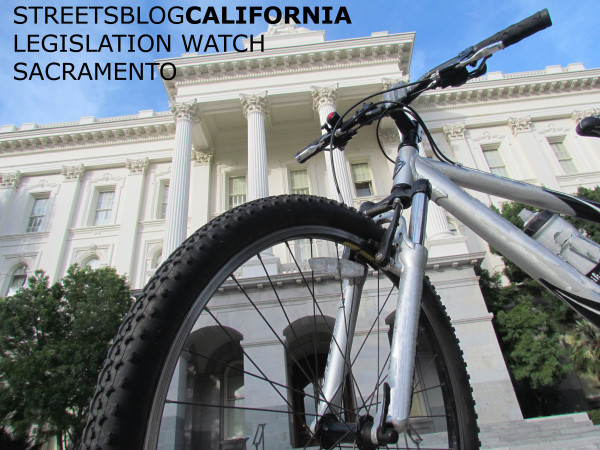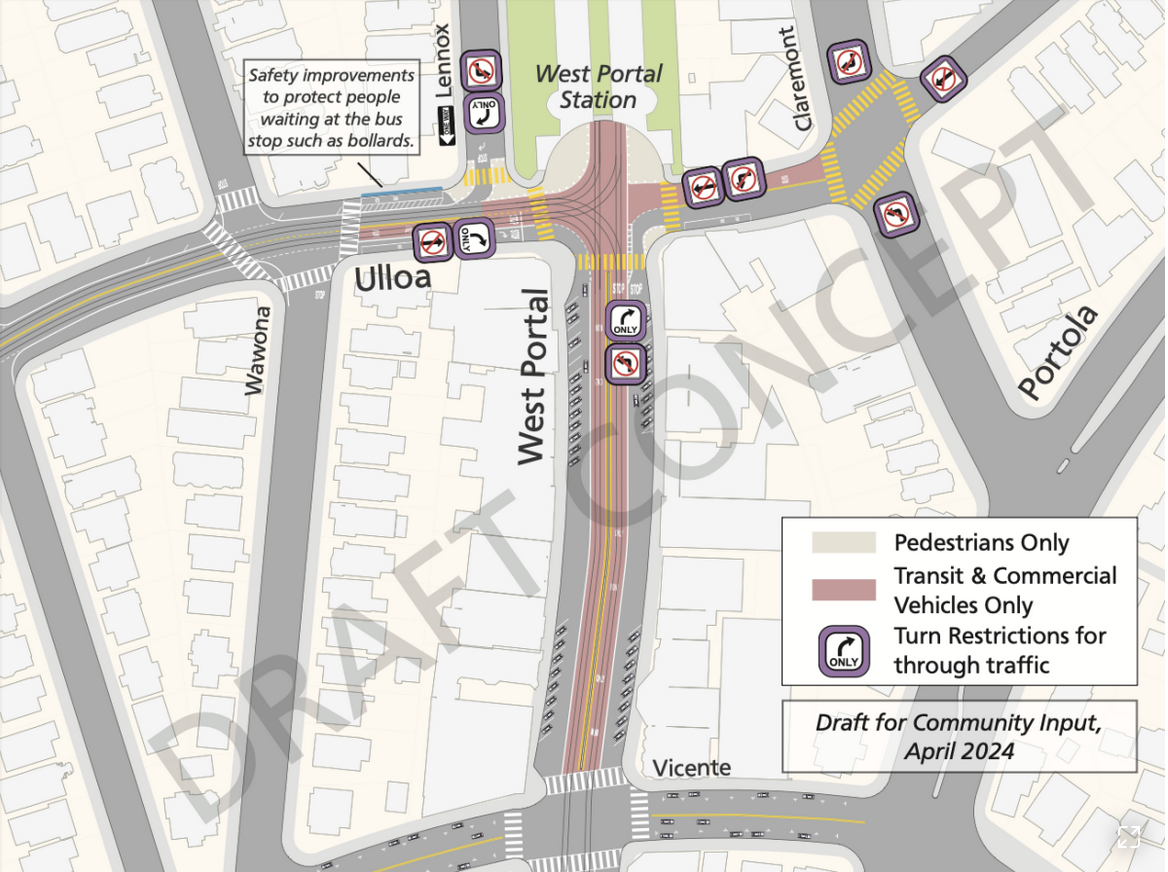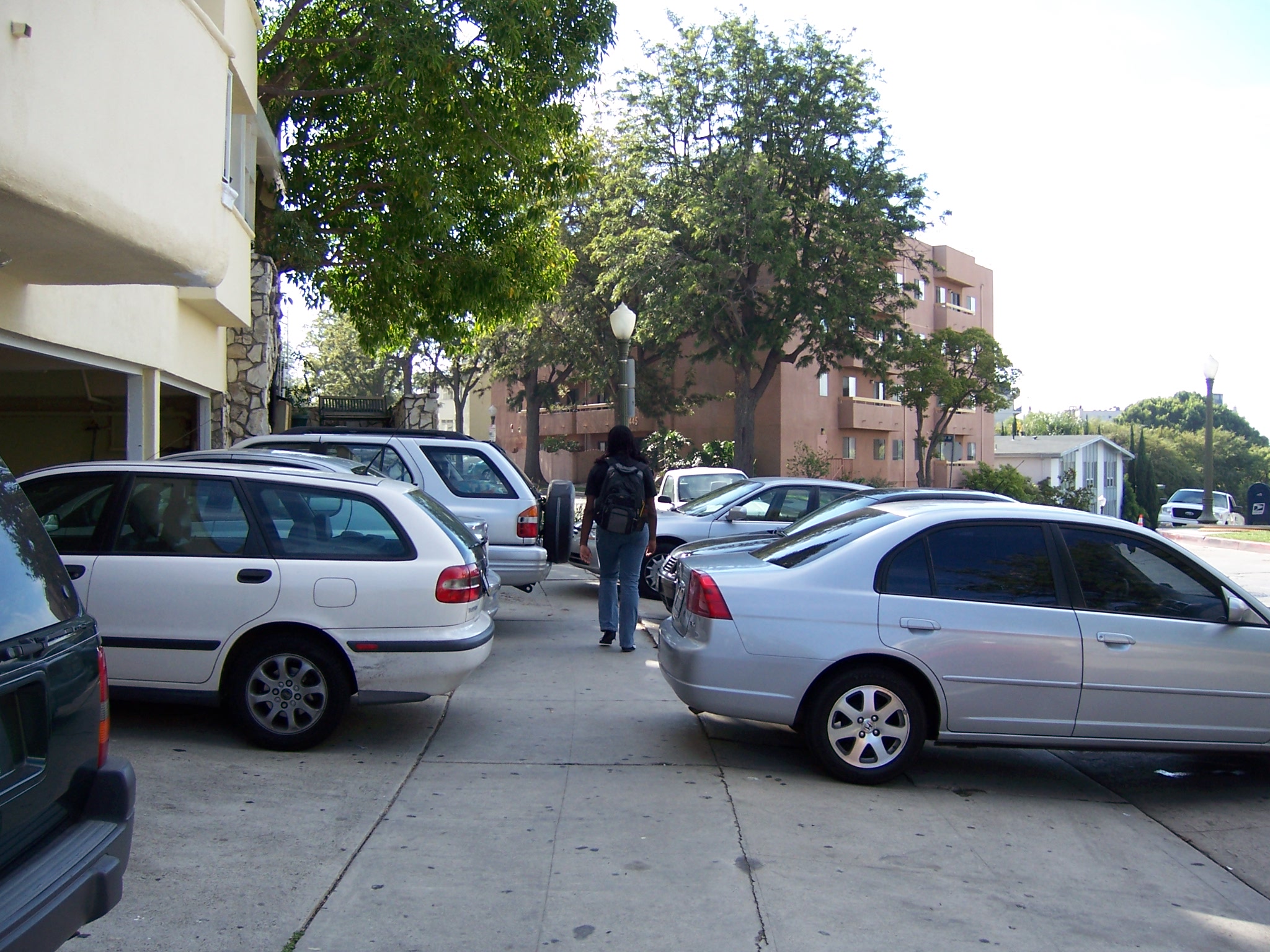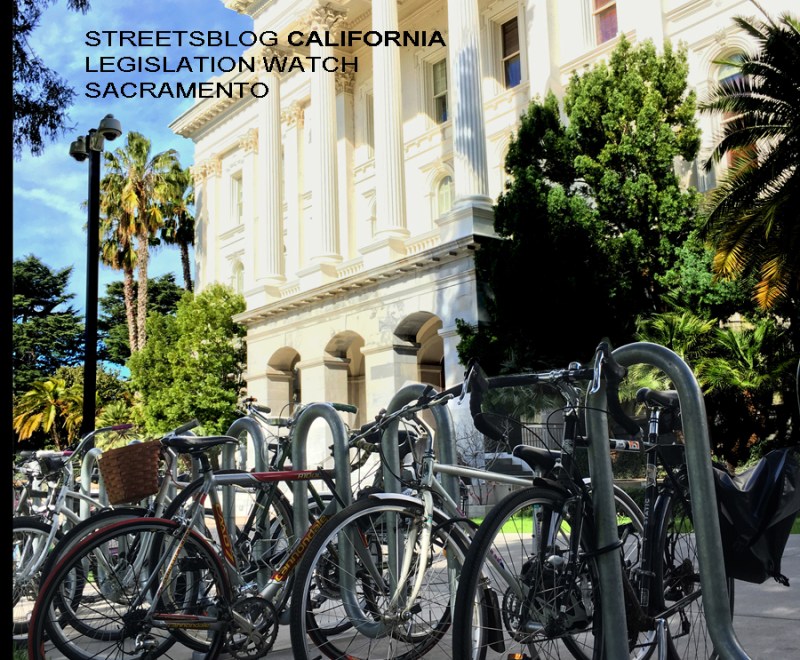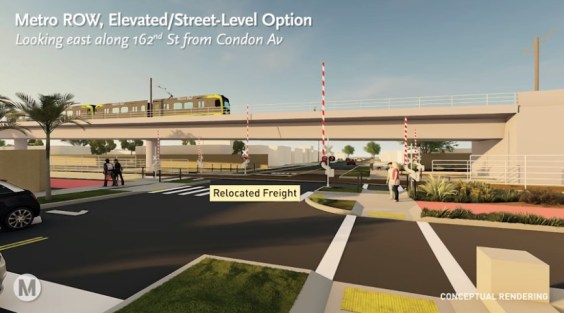The Senate released a spending plan for the unallocated portion of cap-and-trade revenues today, in the form of Assembly Bill 1613. The plan, say Senate leaders and advocates, focuses on environmental equity while supporting projects that will reduce greenhouse gases.
Cap-and-trade revenues, raised at auction from companies that pollute, are required by law to be used to reduce greenhouse gas emissions. Sixty percent of the total auction revenues are allocated by formula to several programs that include High Speed Rail, the Affordable Housing and Sustainable Communities program, and transit. Just yesterday, the California State Transportation Agency allocated $390 million for transit projects throughout the state, including streetcars, rail extensions, and increased bus service.
The remaining forty percent of the revenue has yet to be decided upon. This Senate plan is a step towards finding agreement with the Assembly and the Governor, each of which has previously proposed slightly differing expenditure plans. Last year, the end of the session passed with no agreement being reached. With only a few weeks remaining in this year's session, an agreement is not guaranteed, although leaders in both the Senate and the Assembly have said they are committed to finding one.
Meanwhile greenhouse-gas reduction programs, like waste diversion programs, are in limbo until they know whether they will be funded or not.
The Senate proposal has support from advocates for its focus on environmental equity. “This represents good progress,” said Greenlining Institute Environmental Equity Director Alvaro Sanchez. “This proposal means real help to low-income families and their neighborhoods.”
The plan would spend over $1 billion on programs and projects to reduce greenhouse gases, including the Air Resources Board's Low Carbon Transportation programs (which provide incentives for clean vehicles, among other things), waste diversion, methane emission reduction in the dairy industry, healthy forests, energy efficiency, and renewable energy programs.
The Active Transportation Program would receive $5 million under this proposal, which is better than the goose eggs offered in the previous Senate plan but a far cry from the $100 million called for by advocates and included in the original Assembly expenditure plan. As a method of reducing greenhouse gases, active transportation is hard to beat, yet so far it hasn't received any money from the proceeds of cap and trade.
The plan does, however, set aside $175 million for a new program called “Transformative Climate Communities” that will support disadvantaged communities in efforts to coordinate and combine different projects and programs that together can multiply their greenhouse gas reduction benefits. That could include anything from bike infrastructure to planting trees to building charging stations for electric vehicles.
The new program, outlined in A.B. 2722 from Assemblymember Autumn Burke (D-Inglewood), has the aim of encouraging disadvantaged communities to come up with their own plans to reduce greenhouse gas emissions while also providing other health, environmental, and economic benefits.
A community can decide which greenhouse gas reduction methods suit it best, and combine them accordingly. The main requirement for funding under this program is that projects be community-led.
There is also a small, separate fund allocation in the Senate Plan—to the tune of $5 million—that is aimed at building community engagement in disadvantaged communities.
“We're excited about this program, and about its potential for transformative investment,” said the Greenlining Institute's Sanchez. “It will take a lot of work,” he added, noting that the Strategic Growth Council, which will be tasked with creating the program, has learned a lot from setting up the Affordable Housing and Sustainable Communities program.
Jeanie Ward-Waller, Policy Director for the California Bicycle Coalition, agrees that the new program is important. “This is a positive step by the Senate to invest climate funds in walking and biking projects, especially for California's disadvantaged communities that most need healthy, affordable transportation options,” she said. And, she added, “we look forward to working with the Legislature and the Administration to increase the allocation to the Active Transportation Program in the final agreement.”
Sanchez was positive about the plan's focus on equity. “In general, our conversation in California around climate needs to put equity at the forefront,” he said. “It's encouraging that, in the midst of having the big debate about the future of climate change policies, [with the Senate plan] we're actually moving the ball forward on equity,” he said. “We didn't do that last year; it would not be a good sign if we continued ignoring it.”
The Senate plan is also connected to several bills still on the table in the legislature, including:
- A.B. 1550 from Assemblymember Jimmy Gomez (D-Los Angeles), which would increase the minimum amount of cap-and-trade funds allocated to “disproportionately impacted communities” to 25 percent. It also creates a second category of low-income communities that may fall outside of the CalEnviroScreen-defined “disadvantaged communities” but nevertheless need more assistance to clean up their communities and reduce GHGs.
- A.B. 2293 from Assemblymember Cristina García (D-Bell Gardens), which would create a technical assistance program for small businesses and nonprofits.
